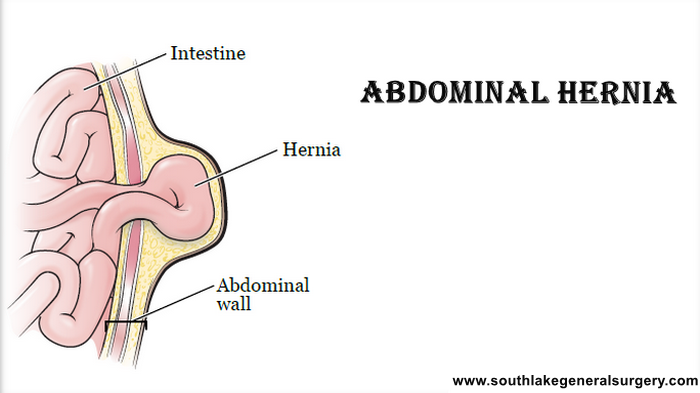An abdominal hernia is a lump or swelling in belly or crotch (top part of leg). It happens when some greasy tissue or part of bowel pushes through a weakness in abdomen wall. Abdominal wall is comprised of sheets of tough muscles and tendons that goes between ribs & crotch.
Overview
If this wall gets vulnerable, anything that’s within can push through, causing an abdominal hernia. Abdominal hernia may not cause any symptoms or you may notice uneasiness or a lump in stomach or crotch. This might be progressively perceptible when you cough or strain.
Consult a doctor, if hernia feels exceptionally sore or tender, particularly if it can’t push it back in. This may imply that a portion of the hernia contents have gotten trapped inside. You’ll require surgery as early as possible.
Types of abdominal hernia
The most well-known kinds of abdominal hernia include:
- inguinal hernia
- hiatal hernia
- ventral hernia
- umbilical hernia
Abdominal hernias are named by where the weakness is in your abdominal wall.
Symptoms of abdominal hernia
If you notice an abdominal hernia, it may refer to:
- a swell or bulge some place on abdomen or in crotch
- slight distress in abdomen or groin
- a feeling of heaviness or aching in abdomen or crotch
Consult a doctor, if any of these symptoms are identifies or you can also consult our healthcare experts and book an appointment at: https://www.southlakegeneralsurgery.com/make-an-appointment/.
At times, the contents of a hernia can get caught inside (incarcerated) and the blood supply can get block (strangulated). These are serious medical condition and can cause a blockage in bowel. Look for immediate medical advice if:
- hernia pain continuously getting worse
- you usually been able to gently push hernia back, but not now
- the hernia swell hurts if you touch it
- the skin over your hernia swell becomes red
- feeling debilitated
Diagnosis of abdominal hernia
A hernia can normally be diagnosed by your doctor. Your doctor will get some information about your symptoms and check your abdomen. They may likewise get some information about your medical history.
Your doctor may check your belly when you’re standing up and resting. They’ll verify whether they can push the lump back in and may request that you cough while they place their finger over the hernia. This is to check whether the swelling changes.
Treatment of abdominal hernia
Your doctor will discuss with you whether you’re going to require surgery. This will rely upon your symptoms, your general wellbeing, age, which kind of hernia you have, it’s size and whether there is increase in size. It will likewise rely upon whether your hernia is probably going to cause difficulties, for example, a bowel blockage.
If your hernia is deteriorating or painful, or you’re probably going to have complications, you’ll be prescribed to have surgery.
Hernia Surgery
An abdominal hernia repair surgery includes pushing the hernia once again into your abdomen and fixing the weakened muscle. You can have a laparoscopic surgery, where the activity is done through small incisions in your lower abdomen. Or on the other hand you can have open hernia surgery with a solitary, large incision. The two kinds of medical procedure have upsides and downsides and your specialist will talk about the best sort of surgery for you.
Everybody recuperates uniquely in contrast to a hernia repair surgery. Many people who have inguinal hernia repair surgery can discharge same day or after 24hrs depending on medical condition. In Open hernia repair surgery, it might take you four to eight weeks to recoup and return to daily activities. If you have laparoscopic hernia surgery, it might take you half a month.
Causes of abdominal hernia
Anything that increase the weight on abdomen can make you bound to get an abdominal hernia. This incorporates:
- coughing, particularly if cough lasts for a long time
- stressing which may happen if you’ve constipation
- lifting heavy items
- being very overweight
- being pregnant with more than one baby (for example, twins) or troublesome pregnancy
You’re prone to have an abdominal hernia as you get older. This is due to your abdomen wall muscles get more vulnerable as you get older.
For more information on Hernia and its treatment. Please contact our healthcare expert today and book an appointment at: https://www.southlakegeneralsurgery.com/make-an-appointment/

